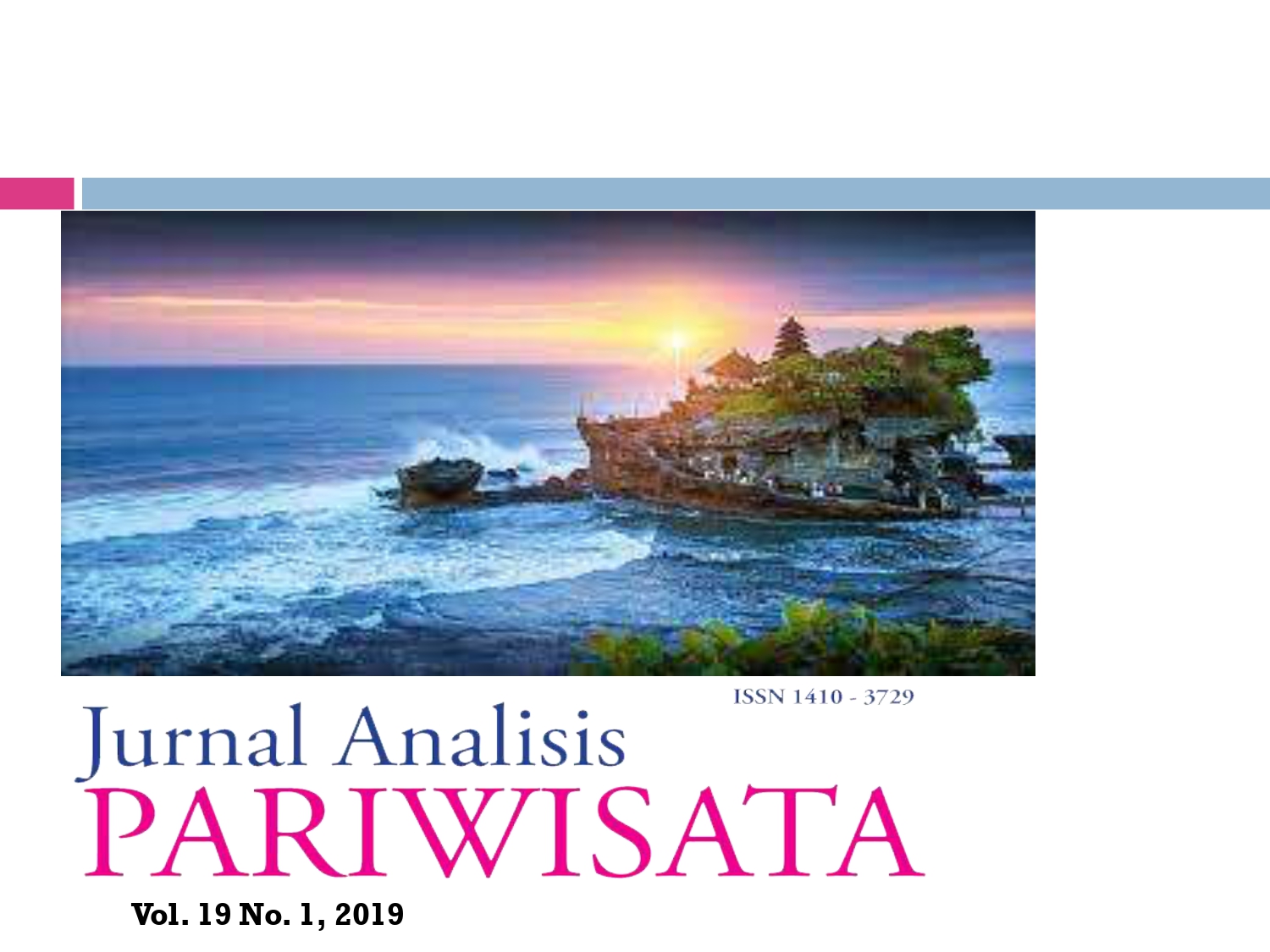MODEL HOSPITALITAS BERBAHASA BAGI CREW BALI YANG BEKERJA DI KAPAL PESIAR CARNIVAL
Tim Editor
Abstract
The focus of this research was conducted to determine the range of language practice (hospitality language) by the cruise ship crew from Bali working as waiter or waitress aboard on Carnivals. Hospitality language is defined as the hospitality in verbal form. The locus of this research took place in CTI Renon Denpasar as the agent that transmits cruise lines crew from Bali to work on a cruise ship Carnivals. Data were obtained by the methods of observing the behavior of the crew who work in the restaurant on the ship of Carnivals. Data were obtained from video documentation and language services (SOP) in the restaurant issued by companies Carnivals. In addition, this research also used the survey method to obtain data on informants and sources which are useful for collecting desired data. Furthermore, the method of interview was also conducted in this study in order to obtain data on non-language. Interview method is mainly done to obtain data related to the extra lingual socio-cultural variables. To describe and analyze data is used by rapport management theory form Spencer-Oatey (2000). This theory is used to inquire the practice hospitality language relating to how the waiter or waitress maintain or manage harmony (report) personally to the guest in providing service in the restaurant. In this case, management is intended as a competence to manage the relationship, while the report referring to the personality of a waitress. The results showed that the hospitality language became one of the skills that must be owned by a waiter or waitress. Language service in restaurants on Carnivals ship is determined by the context and the circumstances. In addition to language services standards (SOP) of the company, the restaurant waiter was also given the freedom to creativity of using language during giving services. To that end, based on the practice of language services performed Balinese crew discovered that the concept of language as the service called extramild hospitality. That is, in addition to the appropriate hospitality standards, Balinese crews also provide extra hospitality-based on their own culture. Hospitality becomes the cultural capital in performing the service. Extramild Hospitality could be used as a model of hospitality for the Balinese crews who work in the restaurant. Meanwhile, the identification verbal data, we concluded that the hospitality language includes three important things, namely (1) the performance of verbal hospitality that refers to the skills of the language according to the communicative functions, (2) competence of verbal hospitality, which refers to the cognitive aspects of understanding and knowledge the grammar of the language, and (3) non-verbal or cultural hospitality competence. Keywords: hospitality language, Balinese Crews, extra-mild hospitality






